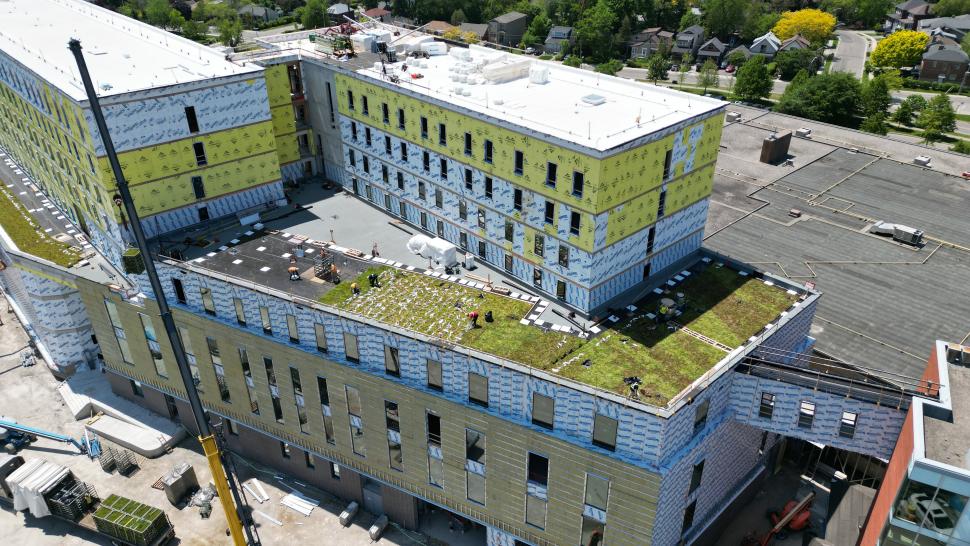
EllisDon photo
You can add another award to the Humber Cultural Hub’s (HCH) list of accolades after it was recently announced that it was named a 2024 Clean50 Top Project award winner.
Annually, the Clean50 Top Projects recognize projects completed in the prior two years based on their innovation and their ability to inform and inspire Canadians.
“The entire HCH Team is honoured to receive this award for the Humber Cultural Hub and being the only building project to receive one of the 26 awards feels very special,” said Scott Valens, director, Capital Development at Humber.
Earlier this year, Humber won silver at the World Federation of Colleges and Polytechnics Awards of Excellence for the HCH in the Construction Award category.
Despite being three times the size of the existing A Building at Lakeshore Campus it will replace, the HCH will use the same amount of energy as its predecessor. It’s forgoing fossil fuels for sustainable energy sources to be a net-zero building.
Won’t use natural gas
The HCH is being built to the highest standards of sustainability including LEED Platinum and Net Zero Carbon standard certifications as well as the Toronto Green Standard. Valens says it’s the largest capital project the College has ever undertaken.
The building will not have any equipment or systems using natural gas. The only other source of energy outside geothermal and solar panels will be electricity supplied by Ontario’s power grid, which mostly relies on hydro and nuclear energy.
The kitchen, serving two cafeterias, will use induction instead of gas.
The building’s geothermal system is made up of 96 boreholes, each 800 feet deep, which will generate about 70 to 80 per cent of energy needed to heat and cool the building. Solar panels will generate another 10 per cent of the energy required meaning the building will run from 90 to 100 per cent renewable energy sources.
Mass timber throughout the HCH uses carbon capture sourced from renewable forests to store carbon and displace high carbon and non-renewable cement, brick and steel from traditional construction. By utilizing a high-performance building envelope, the project will reduce heating costs, and with the strategic use of glazing and shading, reduce solar heat gain and loss.
First phase set to be completed next year
The building will have more than 50,000 sq. ft. of green roofs, which will contribute to the absorption of stormwater runoff, the absorption of carbon dioxide and improvement in air quality. It will also help regulate the ambient temperature of the building, which will decrease energy needs. There is also capacity to simultaneously charge up to 20 electric vehicles at the dual-port chargers.
The HCH will include a new 500-seat Performance Hall as well as a 140-seat Music Recital Hall and an informal interior amphitheatre designed for festivals, public events, and community gatherings. There will be classrooms for use by various faculties, a new gymnasium and cafeteria, labs and more than 300 student residence rooms.
The first phase of construction for the Cultural Hub is expected to be completed by spring 2024. The second phase is expected to be completed by 2026.